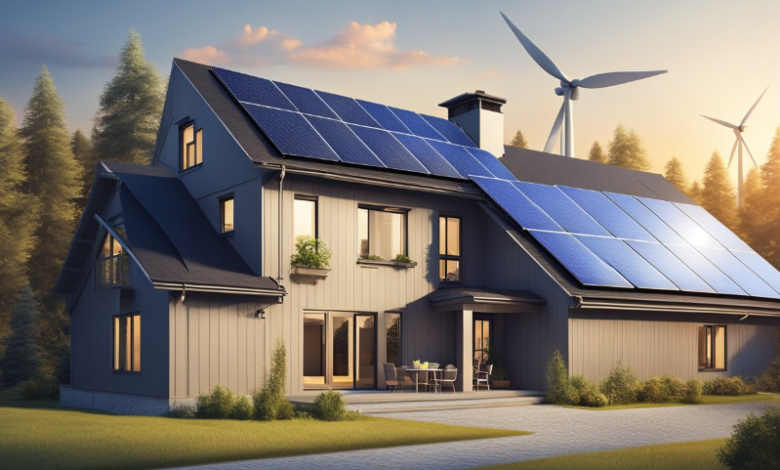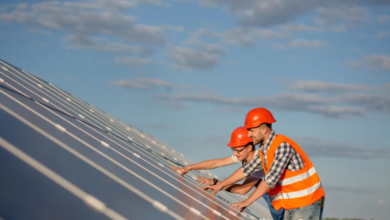Sunshine, Self-Sufficiency, and Savings: The Guide to Off-Grid Energy

Imagine waking up to a bright morning knowing that your home is powered entirely by the energy you’ve captured yourself. That’s the promise of living off the grid: a growing movement toward energy independence and sustainability. As more people seek to reduce energy bills and environmental impact, off-grid systems Darwin and beyond, have become symbols of modern self-sufficiency. This guide will walk you through what off-grid energy means, how it works, and why it’s an increasingly attractive choice for homeowners and property owners everywhere.
Understanding Off-Grid Systems
At its core, an off-grid system is more than just rooftop solar panels; it’s a complete power solution that operates independently of the primary electricity grid. These systems generate electricity through renewable sources such as solar and wind and store that energy for later use. The goal is simple: achieve energy autonomy while maintaining comfort and reliability.
Off-grid systems are particularly valuable in areas where connecting to traditional utilities is costly or unreliable. Still, they’re also appealing to those who want full control over their energy supply. With a well-designed setup, homeowners can enjoy reliable power, avoid rising energy prices, and minimize environmental impact.
Key Components of an Off-Grid System
Every off-grid setup relies on a few essential components that work together to provide continuous, stable electricity:
- Solar Panels: The foundation of most systems, solar panels capture sunlight and convert it into usable electricity. High-efficiency panels are preferred to ensure consistent performance even during less sunny periods.
- Batteries: These store excess energy generated during the day for use at night or on cloudy days. Lithium-ion batteries are the popular choice today thanks to their longevity, energy density, and low maintenance.
- Inverter: This crucial component converts the direct current (DC) electricity stored in batteries into alternating current (AC), which powers household appliances.
- Charge Controller: It regulates the flow of electricity between panels, batteries, and the home, preventing overcharging and extending battery life.
- Backup Generator (Optional): Many people include a generator as an emergency safeguard for prolonged cloudy periods or unexpected energy demands.
The right combination of these elements ensures balance and efficiency. The system must be carefully sized according to energy needs, lifestyle, and environmental conditions.
The Benefits of Going Off-Grid
Choosing to go off-grid offers more than just lower power bills — it’s about independence, sustainability, and long-term value.
- True Energy Independence
Off-grid living frees you from utility companies and fluctuating energy rates. You control your power supply and have full visibility of how it’s produced and used. - Environmental Stewardship
By harnessing renewable energy, you significantly reduce your carbon footprint. It’s a direct and effective way to live more sustainably while protecting natural resources. - Long-Term Savings
Although installation can be an upfront investment, the long-term savings are substantial. With no ongoing electricity bills and minimal maintenance, off-grid systems quickly pay for themselves. - Reliability and Security
Power outages or infrastructure failures don’t affect you when you’re off the grid. A well-designed system ensures consistent power year-round. - Property Value and Flexibility
Homes with self-sufficient energy systems are increasingly desirable. Whether for rural builds or urban retreats, off-grid living allows you to design your lifestyle without limitations.
See also: Why the Sunshine Coast Is Home to Some of Australia’s Most Talented Hairdressers
Challenges and Considerations
While the benefits are compelling, off-grid living does come with a few challenges that require forethought and maintenance:
- Weather Variability: Extended cloudy periods can reduce solar energy production. A strong battery bank or backup generator ensures consistent power.
- Heat and Equipment Longevity: Extreme temperatures can affect battery performance. Investing in components rated for durability ensures reliability and a longer lifespan.
- Upfront Costs: While long-term savings are undeniable, the initial investment can be high. Proper system sizing and budgeting are essential.
- Ongoing Maintenance: Off-grid systems need regular care — cleaning panels, checking connections, and testing batteries — to maintain efficiency.
Being prepared and proactive about maintenance keeps your system running smoothly and ensures it continues to meet your needs for years to come.
Installation and Maintenance Tips
- Work with Experienced Installers:
Seek professional guidance from experts who understand off-grid design and can tailor systems to your specific requirements. - Size Your System for Consistency:
Plan for high-demand periods and build in extra storage to avoid shortfalls during less sunny weeks. - Stay on Top of Maintenance:
Clean solar panels periodically, monitor battery health, and run your generator occasionally to ensure readiness. - Plan for Growth:
Your energy needs may change over time. Choose a system that can be expanded with additional panels or batteries later. - Keep Detailed Records:
Documenting energy usage, upgrades, and maintenance helps diagnose issues quickly and supports efficient long-term operation.
Conclusion
Living off the grid isn’t just about cutting ties with the utility company — it’s about embracing a lifestyle of independence, sustainability, and control. With thoughtful planning, reliable technology, and a commitment to maintenance, off grid systems darwin and beyond are transforming how people think about energy. Whether your motivation is cost savings, environmental responsibility, or self-sufficiency, off-grid living offers a powerful path toward a brighter, more sustainable future.





